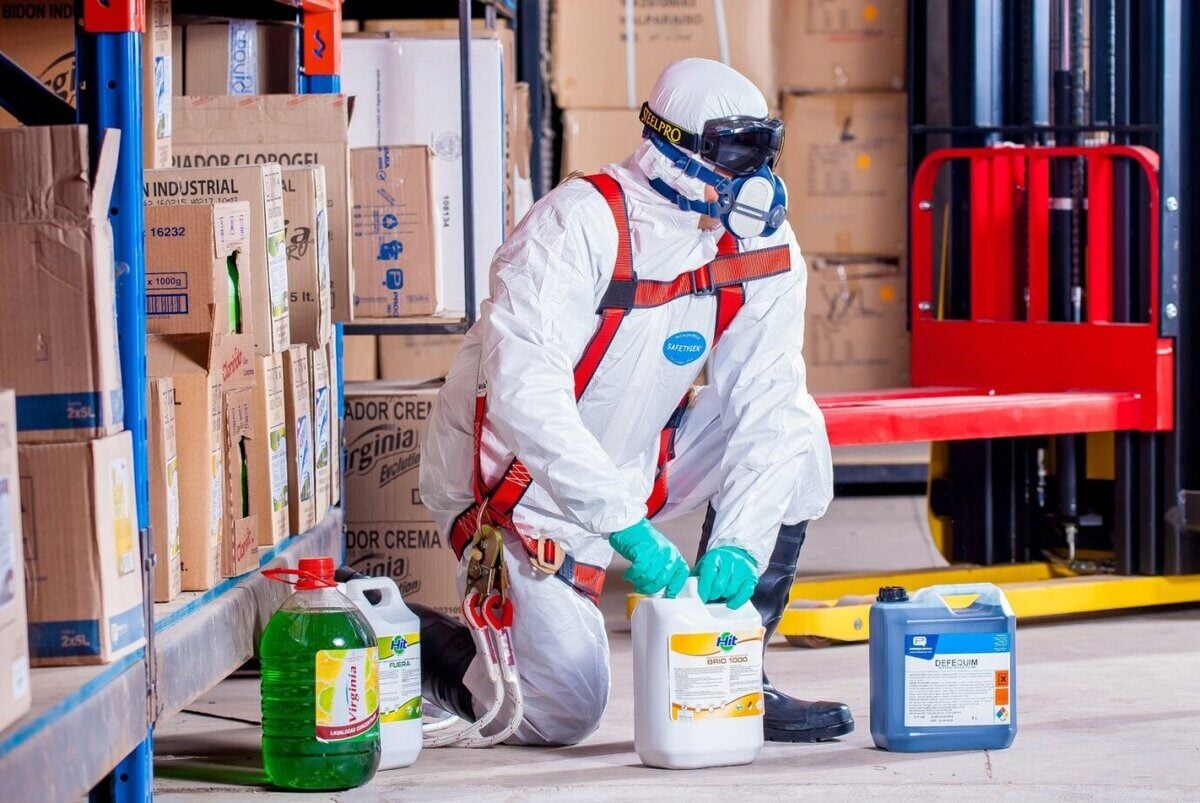In the halls of Westminster, a quiet but powerful battle is unfolding over one of the most pressing environmental and health issues of our time: the regulation of toxic PFAS chemicals. Known as “forever chemicals” for their near-indestructible nature, PFAS (per- and polyfluoroalkyl substances) are a group of more than 10,000 synthetic compounds used in everything from waterproof clothing to nonstick cookware, food packaging, firefighting foams, and industrial manufacturing. They are prized for their durability, but this very quality has also made them one of the most dangerous classes of pollutants in human history.
- What Are PFAS and Why Are They Called Forever Chemicals?
- The Global Response to PFAS Pollution
- Chemical Lobbying in the UK Parliament
- The Science vs. The Spin
- Political Pressure and Public Trust
- The Role of Public Awareness and Activism
- Economic Myths and Realities
- Legal and Ethical Dimensions
- The Way Forward for the UK
- FAQs
- What are PFAS chemicals?
- Why are PFAS dangerous?
- Why is the chemical lobby opposing a ban?
- Are there alternatives to PFAS?
- What can ordinary people do about PFAS pollution?
- Conclusion
While scientists, health experts, and campaigners warn of devastating long-term consequences, the chemical industry is working behind closed doors to shape the narrative. Reports reveal that chemical lobbyists have been pressuring UK MPs not to support a nationwide ban on PFAS, citing economic disruption, supply chain concerns, and supposed technological challenges. This has triggered heated debate between public health advocates and industry representatives, with millions of lives potentially at stake.
The UK now stands at a crossroads: whether to take decisive action against toxic PFAS chemicals or to bow to corporate pressure and delay meaningful change. To understand the full scope of the issue, it is essential to look at what PFAS are, why they are dangerous, how lobbying shapes political decisions, and what the UK risks if it fails to act.
What Are PFAS and Why Are They Called Forever Chemicals?
PFAS chemicals were first developed in the 1940s and quickly became a cornerstone of modern convenience. Their oil- and water-resistant properties made them invaluable in industries ranging from textiles and electronics to aviation and defense. Yet, their molecular structure—characterized by a strong carbon-fluorine bond—means they do not degrade in the environment or the human body.
Once released, PFAS accumulate in soil, water, and living organisms. Studies have found PFAS in the blood of nearly every human tested worldwide, including newborns. They are linked to severe health issues such as liver damage, thyroid disorders, infertility, developmental delays in children, immune suppression, and several forms of cancer. The World Health Organization and the European Food Safety Authority have issued warnings about exposure levels, and the US Environmental Protection Agency has set near-zero safety thresholds for drinking water contamination.
The Global Response to PFAS Pollution
Countries across Europe, along with the United States, Canada, and Australia, have begun taking steps to phase out PFAS. The European Union is considering one of the world’s largest-ever chemical bans, potentially covering thousands of PFAS compounds. Denmark has already prohibited PFAS in food packaging, while the US has begun restricting their use in firefighting foams and drinking water systems.
These moves reflect growing public awareness and scientific consensus that the risks of PFAS far outweigh their benefits. However, in the UK, progress has been slow. Although some restrictions exist, there is no comprehensive ban, and many industries continue to use PFAS widely. Campaigners argue that Britain risks becoming a dumping ground for hazardous chemicals as other nations tighten regulations.
Chemical Lobbying in the UK Parliament
The chemical industry has mobilized significant resources to prevent a ban. Trade associations, lobby groups, and corporate representatives have been meeting MPs, presenting reports, and sending letters warning of dire consequences if PFAS are outlawed. Their arguments typically center on three themes:
- Economic impact – Lobbyists claim that banning PFAS would cost billions, disrupt supply chains, and harm UK competitiveness in industries like aerospace, healthcare, and electronics.
- Lack of alternatives – Industry voices argue that replacements for PFAS are either unavailable or inferior, particularly in critical sectors like medical devices or defense technologies.
- Gradual transition – Rather than a ban, lobbyists push for a “managed phase-out” with extended timelines, allowing continued use for years to come.
Critics see these claims as exaggerated and self-serving. Experts point to the availability of safer alternatives in many applications, while campaigners warn that every year of delay means more contamination of rivers, soils, and human bodies.
The Science vs. The Spin
Lobbyists often present selective data to downplay PFAS risks. For instance, they highlight the benefits of PFAS in life-saving medical equipment while ignoring the vast majority of uses, such as in cosmetics, fast food wrappers, and stain-resistant fabrics, which could easily be replaced.
Scientific evidence tells a different story. A study published in Environmental Science & Technology estimated that the societal costs of PFAS exposure—including healthcare, productivity loss, and environmental clean-up—reach hundreds of billions annually in the EU alone. In the UK, research by environmental charities suggests that removing PFAS from drinking water systems could cost water companies up to £21 billion over the next two decades. These costs ultimately fall on taxpayers and consumers, not the corporations profiting from PFAS production.
Political Pressure and Public Trust
The UK government has pledged to tackle harmful pollutants, yet it has also been accused of bowing to industry pressure. Insiders report that MPs sympathetic to business interests have argued against sweeping bans, citing concerns about job losses and manufacturing output. At the same time, public trust in government handling of environmental issues has been shaken by delays in addressing sewage dumping in rivers and failures to meet air quality targets.
For campaigners, the PFAS debate is a test of whether the UK government prioritizes corporate interests or public health. “We cannot afford another decades-long delay like we saw with asbestos or lead,” said one environmental lawyer. “The science is clear, the risks are known, and the time to act is now.”
The Role of Public Awareness and Activism
Public pressure has historically played a decisive role in environmental regulation. In the United States, lawsuits by communities poisoned by PFAS have led to billion-dollar settlements with chemical giants like DuPont and 3M. Films such as Dark Waters have brought the issue into mainstream culture, inspiring grassroots activism.
In the UK, environmental groups are rallying to raise awareness. Campaigns calling for a PFAS ban have gained traction on social media, while citizen science projects are testing rivers and tap water for contamination. A growing number of MPs, particularly from opposition parties, are voicing support for a full ban, though the outcome remains uncertain.
Economic Myths and Realities
One of the strongest arguments from the chemical lobby is that banning PFAS would devastate the economy. However, independent studies challenge this narrative. Transitioning away from PFAS may involve short-term costs, but the long-term benefits far outweigh them. For example:
- Innovation boost: Restrictions can drive innovation, leading to the development of safer, more sustainable alternatives.
- Job creation: Green chemistry and clean manufacturing sectors are projected to expand, creating new employment opportunities.
- Cost savings: Avoiding healthcare costs and environmental damage can save governments billions.
By clinging to PFAS, industries may actually be slowing down their own adaptation to a global market that is moving decisively toward sustainability.
Legal and Ethical Dimensions
Beyond the science and economics, there are profound ethical questions. Should corporations be allowed to profit from chemicals that contaminate the planet for generations? Is it acceptable for politicians to prioritize industry profits over citizens’ health?
Legal experts warn that if the UK fails to act, it could face future lawsuits from communities harmed by PFAS exposure. Just as with tobacco or asbestos, companies and governments that ignored warnings may be held liable for damages.
The Way Forward for the UK
To protect public health and restore trust, experts recommend several key steps:
- Implement a comprehensive ban on non-essential uses of PFAS, with exemptions only for truly critical applications where no alternatives exist.
- Invest in research and development for safer substitutes, supported by government funding and industry collaboration.
- Strengthen monitoring and enforcement, ensuring that water companies and manufacturers meet strict safety standards.
- Increase transparency in political lobbying, requiring disclosure of all meetings and communications between MPs and chemical industry representatives.
- Engage the public through education campaigns about the risks of PFAS and the importance of safer alternatives.
FAQs
What are PFAS chemicals?
PFAS (per- and polyfluoroalkyl substances) are a group of synthetic chemicals used for their water-, heat-, and stain-resistant properties. They are called “forever chemicals” because they do not break down naturally in the environment or the human body.
Why are PFAS dangerous?
PFAS are linked to cancer, thyroid disease, liver damage, immune system suppression, and developmental problems in children. They accumulate in water, soil, and human blood, creating long-term health and environmental risks.
Why is the chemical lobby opposing a ban?
The chemical industry argues that banning PFAS would hurt the economy, disrupt supply chains, and remove essential products from the market. However, critics say these claims are exaggerated and primarily protect corporate profits.
Are there alternatives to PFAS?
Yes. Many PFAS uses, such as in food packaging, textiles, and cosmetics, already have safer alternatives. For critical applications, research is ongoing to develop suitable replacements.
What can ordinary people do about PFAS pollution?
Individuals can support PFAS-free products, pressure retailers and brands to phase out PFAS, join environmental campaigns, and demand stronger political action. Public pressure has historically been key in driving change.
Conclusion
The battle over PFAS in the UK is more than a dispute over chemical regulation—it is a test of political will, corporate accountability, and society’s commitment to future generations. The evidence is clear: PFAS are harmful, persistent, and unnecessary in most applications. While the chemical lobby works tirelessly to delay reform, the cost of inaction grows every day. The UK must decide whether to side with industry profits or public health. Choosing the latter would not only safeguard the environment but also affirm a national commitment to justice, safety, and sustainability. History has shown that when governments act boldly in the face of corporate resistance, lives are saved and progress accelerates. The time for half-measures has passed; the time for a comprehensive ban on toxic PFAS chemicals is now.



